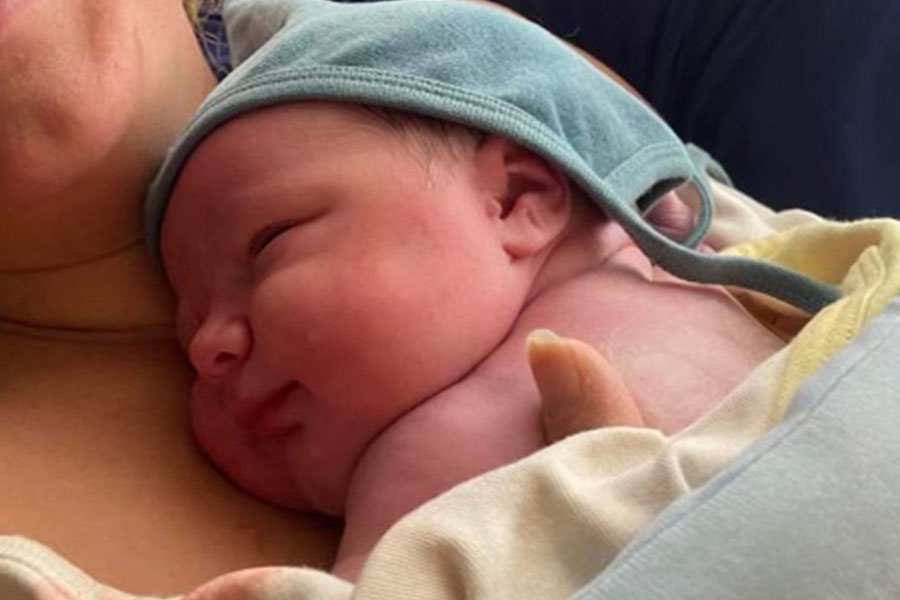Midwives excel in providing family centered care in whatever setting they choose to practice. Their goal is always healthy mom and healthy baby.
A midwife is a wise woman who is trained in the art and science of birth and is familiar with birth’s many faces. She will guide you based on her education, knowledge, intuition and values. Midwives have attained extensive knowledge of the birthing process and take the necessary actions to prevent issues before, during and after birth.
As your pregnancy progresses you and your midwife develop a mutual trust based on collaborative care that culminates in the birthing process.
“After interviewing four midwives, I chose to go with Heather LeMaster of San Diego County Midwives. I cannot say enough about how wonderful the care, professionalism, and service was throughout my pregnancy, during the birth, and even after the birth.”
– Espie T.



What is holistic care?
Holistic care considers the physical, spiritual, mental, emotional aspects of the person.
Part of that journey of pregnancy is getting to know your care providers – us, your midwives. We listen to what you say. We even listen to what you don’t say. We listen to your family members that may join you at a prenatal visit.
We care about what’s happening in your life because it definitely impacts your pregnancy and can also affect your birthing process.



Why choose a midwife?
Midwives are trained and experienced in normal birth. They are not surgeons, pediatricians or specialists in pregnancy disease – that’s what physicians excel in.
Midwives generally view birth as a normal experience in the life of a healthy woman’s reproductive career. Midwives can assist families experiencing complex pregnancies also. They may provide additional supportive, nutritional and individualized care for the family birthing in a high risk setting.
Some midwives specialize in holistic health care such as acupuncture, nutrition for twin pregnancies, homeopathy, herbal medicine, labor and delivery support (monitrice care) in the institution or postnatal care focusing on newborn care, pelvic recovery, and even menopausal management.
So look for a midwife that meets the needs that your current care provider does not offer.
Here are a few questions to consider when choosing your midwife:
- Who do I feel safe and at home with?
- What about the Midwifery Team, does it feel right?
- Personality wise, does it feel right?
- Does their philosophy on pregnancy and birth, work with my own personal views?
Sometimes families will choose their Team based on who will be covered by their Insurance Company. This doesn’t happen often for homebirth since most Ins Co. don’t cover homebirth but sometimes with a CNM an exception may be made.
How is a doula different from a midwife?
Doulas are labor support professionals who provide physical, emotional and information support to families. They will physically be present at the birth and assist the family throughout the process. Doulas provide no clinical care; do not tell families how they should birth and do not make decisions for the family.
Midwives provide clinical care, educate and inform the family throughout the course of pregnancy to assist them in finding their birthing journey. Midwives provide well woman and family planning care.
How does care from a midwife differ from that of an OB?
Midwifery care provides holistic care. It is very personal care. Women decide how, with whom and where they choose to birth. Midwives give care back to women! We listen to them. We hear their concerns. We collaborate with them.
CNM, CPM, LM: Why are there different kinds of midwives?
Licensed Midwife (LM) is a certification process that States administer to register and allow midwives to practice within their state. State licensure takes various forms, however, currently 39 states regulate midwifery through licensure and one by statute.
California LM’s are licensed by the Medical Board of California – the same agency that licenses physicians and other holistic health care providers.
Certified Professional Midwife (CPM) credential is the path by which most licensed midwives use to receive their license.
The CPM credential is achieved by a combination of midwifery education, very specific required clinical experiences, normally consisting of are very specific midwifery experiences, clinical care as a student midwife, and well woman services.
After successfully completing, vetting their experience and submitting documentation, they midwife candidates will then sit for the national exam. When they successfully complete the exam, they receive their certification. After receiving CPM credential, they apply to their respective states and complete any additional requirements to receive their state license to practice midwifery.
Certified Nurse Midwives (CNM) are midwives who were nurses first.
They are required to complete two more years of education, one academic and one didactic and then sit for the exam that will allow them to certify and practice midwifery.
CNM’s are certified through the nursing board and approved to practice in all 50 states.
Their clinical training is in institutional settings – hospitals and occasionally, birth centers. Certified Nurse Midwives are designated physician extenders and therefore required to work under the supervision of physicians.
They are currently working on being recognized as primary care providers.
Does it matter if I choose a CNM or CPM for my homebirth?
If you are counting on insurance reimbursement, check with your insurance company to see what care is covered under your plan.
When deciding what type of midwife is best for you, think about where you want to birth.
CNM’s specialize in institutional birth. CPM’s and licensed midwives specialize in community birth – both home and birth center. Their educational process is different. CPM’s spend a little over three years on academic education specifically geared towards providing care for normal pregnancy, well woman and well baby care.
All midwives work with low risk women and pregnancy. We know and do very well providing care for 85% of all pregnancies, as they are considered normal, healthy events in a healthy woman’s life.
Consult Your Midwife
© 2024 San Diego County Midwives
San Diego County Midwives have either authored or reviewed and approved the content on this website.
Disclaimer of Medical Advice: All users of this website are responsible for their own medical care, treatment, and oversight. All of the content provided on the website is for informational purposes only and does not constitute the providing of medical advice. It is not intended to be a substitute for independent professional medical judgment, advice, diagnosis, or treatment.






